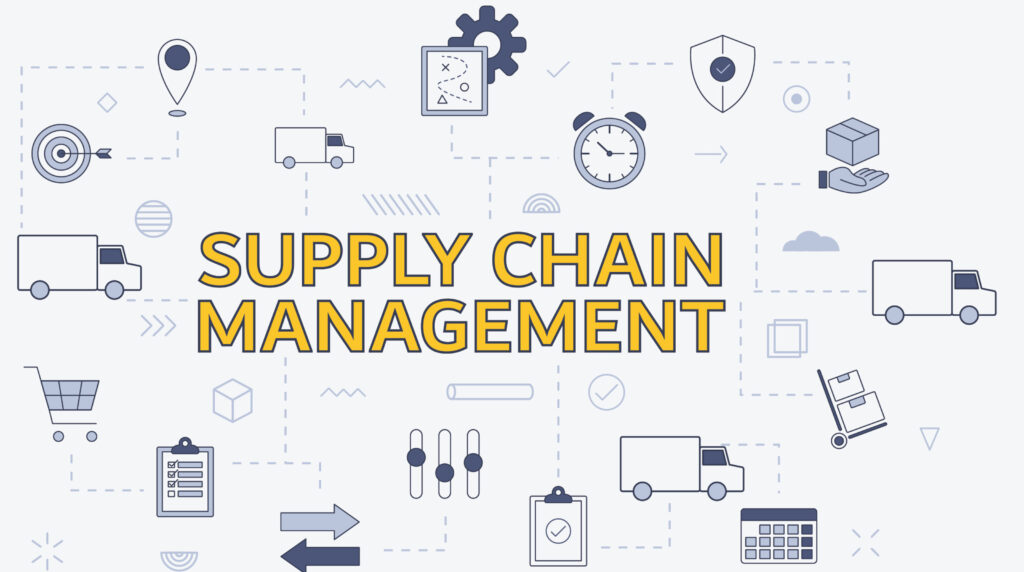
Blockchain Technology and Medical Research
- Cary
- June 8, 2023
- Blockchain
- Blockchain, Crypto, Supply Chain Management
- 0 Comments
Blockchain technology, best known as the underlying technology for cryptocurrencies like Bitcoin, has gained significant attention across various industries. In healthcare, blockchain has emerged as a promising solution for addressing critical challenges related to data security, interoperability, and trust. However, along with its potential benefits, there are important ethical considerations that need to be taken into account. This article explores the ethical implications of implementing blockchain technology in healthcare and discusses various aspects that require careful consideration.
Blockchain Technology
Blockchain technology is a revolutionary concept that has gained significant attention and holds immense potential across various industries, including finance, supply chain management, and healthcare. At its core, blockchain is a decentralized and distributed digital ledger that securely records transactions or data across multiple computers or nodes. This technology is designed to be transparent, immutable, and resistant to tampering, making it highly secure and trustworthy.
One of the key features of blockchain is its ability to create a transparent and auditable record of transactions or data. Each transaction, known as a block, is linked to the previous block, forming a chain of blocks. This ensures the integrity of the data and prevents unauthorized modifications. The decentralized nature of blockchain means that no single entity has complete control over the system, reducing the risk of manipulation or fraud.
In the context of healthcare, blockchain technology has the potential to address critical challenges such as data security, interoperability, and trust. It can provide a secure and immutable platform for storing and sharing sensitive patient data, ensuring confidentiality, integrity, and availability. By securely encrypting patient data and providing granular access controls, blockchain can empower patients with greater control over their health information while still enabling seamless data exchange between healthcare providers.
Security and Privacy Concerns
One of the key advantages of blockchain technology is its ability to ensure data integrity and immutability. In the context of healthcare, this can be highly valuable for maintaining accurate and consistent medical records. By securely storing patient data on a blockchain, healthcare providers can protect against unauthorized access and tampering. This safeguards patient privacy and helps prevent data breaches that could lead to identity theft or medical fraud. However, it is crucial to strike the right balance between data security and patient confidentiality. Encryption and decentralized storage mechanisms can be employed to enhance privacy while still allowing authorized access to healthcare professionals.
Interoperability and Data Exchange
Interoperability has long been a challenge in healthcare, with different systems and protocols hindering seamless data exchange between providers. Blockchain technology offers potential solutions by enabling standardized data formats and secure sharing mechanisms. Smart contracts can automate data sharing agreements, ensuring that the right information is accessible to authorized parties. This can streamline healthcare processes, reduce duplication of tests and procedures, and improve the continuity of care for patients. However, standardization and compatibility challenges need to be addressed to fully leverage the benefits of blockchain-based interoperability.
Clinical Trials and Research
Transparency and trust are critical in the realm of clinical trials and research. Blockchain technology can provide an immutable record of research data, allowing for easy verification and auditability of clinical trial results. This helps prevent data manipulation and publication bias, leading to more reliable and trustworthy outcomes. Additionally, blockchain can facilitate collaborative research networks by securely sharing sensitive patient data across institutions. This enables cross-institutional studies and data pooling, accelerating medical discoveries and improving patient outcomes. However, ensuring proper consent and protecting patient privacy remain paramount in these endeavors.
Supply Chain Management

Blockchain technology can revolutionize supply chain management in the healthcare industry. By tracking and authenticating pharmaceutical products, blockchain can help prevent the circulation of counterfeit drugs, ensuring patient safety. Moreover, it enables real-time monitoring and optimization of supply chains, reducing inefficiencies and costs. The ability to trace the entire journey of a drug, from manufacturer to patient, enhances transparency and accountability. However, the adoption of blockchain in supply chain management requires collaboration among stakeholders and the establishment of industry standards.
Ethical Considerations
Implementing blockchain in healthcare raises important ethical considerations. Informed consent and patient autonomy must be respected throughout the process. Patients need to be educated about the benefits and risks of blockchain technology to make informed decisions. Their privacy preferences and rights should be protected, and mechanisms should be in place to obtain and manage consent effectively. Moreover, it is crucial to ensure equity and accessibility in blockchain-based healthcare services. Efforts should be made to bridge the digital divide and address technological barriers that could create disparities in healthcare access.
Regulatory and Legal Challenges
Regulatory and legal challenges are an important aspects to consider when implementing blockchain technology in healthcare. The following points highlight some of the key challenges:
- Compliance with Data Protection Laws: Healthcare organizations must ensure that blockchain implementations align with data protection laws and regulations, such as the General Data Protection Regulation (GDPR) and the Health Insurance Portability and Accountability Act (HIPAA). This includes protecting patient privacy, obtaining appropriate consent for data sharing, and implementing robust security measures.
- Balancing Transparency and Privacy: Blockchain’s inherent transparency can conflict with privacy requirements. Striking the right balance between transparency and protecting sensitive patient information is crucial. Implementing mechanisms to control data visibility and access based on consent and privacy preferences is essential.
- Liability and Accountability: The distributed nature of blockchain technology can make it challenging to determine liability and accountability in case of errors, security breaches, or disputes. Establishing legal frameworks to attribute responsibility and enforce contracts within blockchain systems is necessary to ensure legal compliance and protect all parties involved.
- Intellectual Property Rights: Blockchain implementation in healthcare may involve the use of intellectual property, such as patented technologies or innovative solutions. Protecting intellectual property rights and addressing licensing and ownership issues within blockchain networks require careful consideration and legal frameworks.
- Interjurisdictional Challenges: Healthcare systems and regulations can vary across jurisdictions. Implementing blockchain solutions that comply with different legal frameworks and ensuring cross-border data transfer compliance can be complex. Collaboration between regulators and international standards organizations is necessary to address these challenges.
- Ethical Considerations: The ethical implications of blockchain in healthcare, such as ensuring informed consent, respecting patient autonomy, and addressing equity concerns, have legal ramifications. Developing ethical guidelines and aligning them with legal frameworks is essential to promote responsible and ethical blockchain adoption in healthcare.
- Regulatory Uncertainty and Evolving Landscape: Blockchain technology is relatively new, and regulations and policies may not yet fully address its unique aspects. The regulatory landscape is evolving, and healthcare organizations must stay informed about changes, adapt their practices accordingly, and engage in ongoing dialogue with regulators to shape future regulations.
Future Outlook
The future outlook for blockchain in healthcare can be summarized in the following points:
- Advancements in Technology: Continued advancements in blockchain technology, such as improved scalability, interoperability, and privacy features, will enhance its applicability and effectiveness in healthcare.
- Greater Adoption: As awareness and understanding of blockchain technology grow, more healthcare organizations and stakeholders are likely to adopt it, leading to increased implementation and integration of blockchain solutions in various healthcare processes.
- Enhanced Data Security: Blockchain’s inherent security features, such as encryption, decentralized storage, and immutability, will continue to play a crucial role in safeguarding patient data and protecting against unauthorized access and data breaches.
- Improved Interoperability: The use of blockchain can contribute to improved interoperability between different healthcare systems and institutions, facilitating seamless data exchange, reducing duplication, and enhancing the continuity of care for patients.
- Collaboration and Standardization: Interdisciplinary collaboration among healthcare professionals, technologists, regulators, and policymakers will be crucial to develop industry standards and best practices for blockchain implementation in healthcare, ensuring consistency and interoperability across systems.
- Innovation in Research and Clinical Trials: Blockchain technology has the potential to revolutionize the field of research and clinical trials by enabling transparent and trustworthy data sharing, improving trial integrity, and promoting collaboration among researchers and institutions.
Conclusion
Blockchain technology has the potential to revolutionize healthcare by addressing critical issues such as data security, interoperability, and trust. However, as with any emerging technology, there are ethical considerations that must be carefully evaluated. Balancing data security with patient privacy, ensuring informed consent, promoting equity and accessibility, and navigating regulatory and legal challenges are key aspects to address. By proactively addressing these ethical considerations, healthcare stakeholders can harness the full potential of blockchain while prioritizing patient welfare and trust.
FAQs
Is blockchain technology secure for storing sensitive patient data?
Blockchain technology provides enhanced security for storing sensitive patient data. Its decentralized and immutable nature makes it difficult for unauthorized parties to access or tamper with the data.
How can blockchain improve interoperability in healthcare?
Blockchain facilitates interoperability by providing standardized data formats and secure sharing mechanisms. Smart contracts automate data sharing agreements, streamlining information exchange between healthcare providers.
What are the ethical implications of using blockchain in clinical trials?
Blockchain enhances transparency and trust in clinical trials by ensuring verifiability and preventing data manipulation. However, ethical considerations include obtaining informed consent and protecting patient privacy during data sharing.
How can blockchain improve supply chain management in healthcare?
Blockchain enables tracking and authentication of pharmaceuticals, preventing counterfeit drugs and improving patient safety. It also streamlines supply chain logistics, reducing inefficiencies and optimizing inventory management.
What are the regulatory challenges associated with implementing blockchain in healthcare?
Compliance with data protection laws, such as GDPR and HIPAA, is a significant regulatory challenge. Striking the right balance between transparency and privacy is essential to meet regulatory standards.

